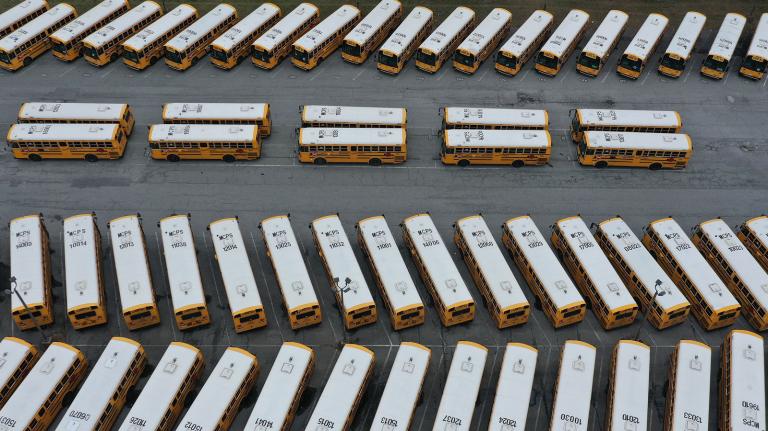Sheldon Kimber is the CEO of Intersect Power.
Costs for solar and wind energy are the lowest they’ve ever been in the United States, and there’s been a dramatic surge in renewable projects in development. While that’s great news, there’s an enormous backlog of solar and wind projects across the country that are stalled out because of the inefficient way that Washington provides tax credits to our industry. We desperately need a legislative solution.
The costs of wind and solar projects are all upfront, so renewable energy companies have never owed enough taxes to take advantage of the tax credits they’ve been given by the federal government to incentivize wind and solar development. To make use of these credits, companies like mine have to partner with banks to exchange our tax credits for financing. Banks get to reduce their tax liability, and renewable energy companies get to build solar and wind farms. This may sound like a win-win, but it’s not.
When my team calls a bank to get financing, they’re usually told that the bank has already committed to the few customers with whom it has long-standing relationships. In order to convert tax credits into financing, banks need a small army of tax attorneys and energy specialists, and most have very little incentive to respond to all the renewable energy companies that come calling.
The corporate tax cuts passed by Congress in 2017 and the COVID-19 economic downturn have also significantly reduced these banks’ tax liability, making the exchange for tax credits less desirable. The COVID-induced downturn alone created a tax-equity financing shortfall in the renewables industry of roughly $23 billion, or 31 gigawatts worth of solar and wind projects nationwide. That’s enough energy to power approximately 6 million homes.
An analyst at BloombergNEF estimates that as of last October, 59 percent of solar projects and 67 percent of wind projects slated for construction in 2020 and 2021 were still in need of tax-equity financing.
The bottom line: Renewable energy companies are trying to meet the demand for clean energy. Instead, they are left with projects on ice and worthless federal tax credits that are akin to department store coupons that have so many exclusions you can’t apply them to anything you want to buy. Tax-equity financing for renewables originated in the 1970s when solar and wind farms were few and small, which at the time benefited startups. But now supply is no longer meeting demand, and the policy no longer makes economic sense. Banks have inadvertently become a choke point for consumers who want wind and solar, which is now the cheapest form of energy in most areas of the country.
The renewables industry typically doesn’t rock the boat. To date, we’ve become used to having very little political pull; we’ve taken what was given to us by the government with sometimes genuine enthusiasm. However, with a president, Congress, and public in support of taking on climate change, the time is now for everyone in this industry to aggressively demand reforms to the system of incentives. Without them, the renewables industry cannot possibly meet climate and jobs expectations.
Reforms to these credits would immediately greenlight shovel-ready, job-creating renewable energy projects in every corner of the country. And these policy changes aren’t hard. Simply remove the choke point (the bank’s ability to offer financing) and allow refunds for any unused tax credits. Since Congress has already budgeted for these tax credits, refunding them won’t contribute to the nation’s deficit.
Tax credits have long been a favored tool of Congress to incentivize good behavior and deliver benefits. Thankfully, when I’ve raised this issue with lawmakers in Washington, I’ve heard real optimism about reforming the way credits are provided to our industry. However, more lawmakers need to understand how dire the situation is so that this opportunity isn’t lost.
They should support the bill introduced last month, the Save America’s Clean Energy Jobs Act, which would allow renewable companies to get direct refunds from the U.S. Treasury for the tax credits they can’t use. This would finally deliver the clean energy projects that the federal government has already seen fit to fund. Biden’s ambitious American Jobs Plan would also fix this broken system.
If the United States wants to lead the world in green jobs and clean energy, we urgently need a much more efficient and effective means to incentivize renewable energy development. I encourage everyone who cares about climate change and green jobs to speak out, and for Washington to do the right thing. Otherwise, enormous benefits to our economy and the planet will continue to be left on the table.
The views expressed here reflect those of the author. Fix is committed to publishing a diversity of voices. Got a bold idea or fresh news analysis? Submit your op-ed draft, along with a note about who you are, to fix@grist.org.



